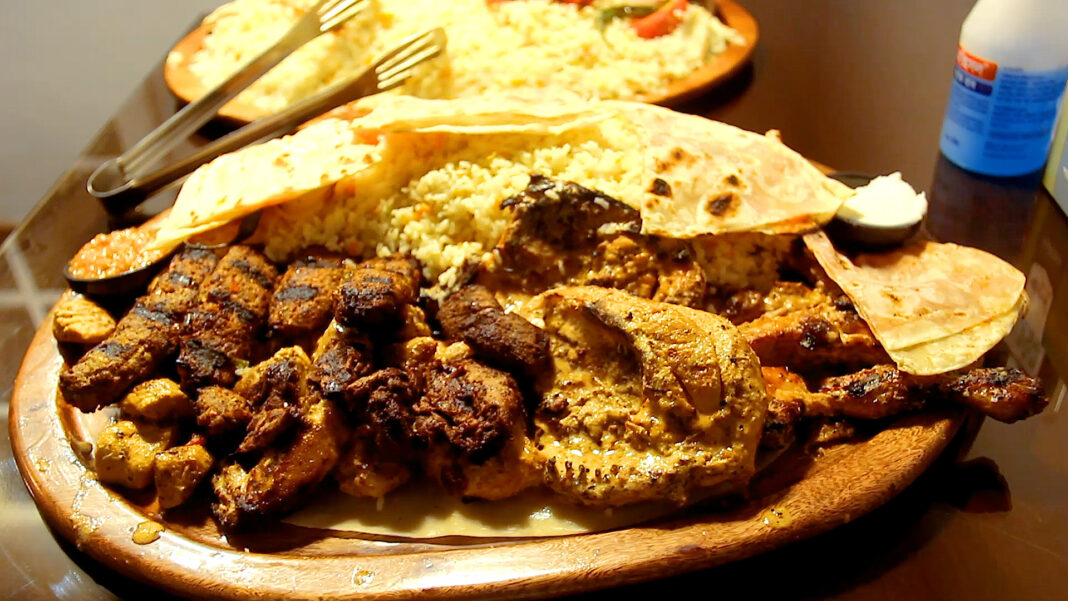DHAKA: Accustomed to spicy flavors, residents of the Bangladeshi capital rarely venture beyond South Asian cuisine. But that changes during Ramadan, when for many in Dhaka traditional Arab food becomes the first choice for suhoor and iftar meals.
For Middle Eastern restaurants in the city, the Muslim fasting month is a chance to increase sales and build their customer base in the hope satisfied diners will keep coming back even after the season has ended.
Two of the most popular options for Bangladeshis eating at Arab restaurants are kabsa — a rice dish with spice-rubbed meat cooked layer by layer in the same pot, which is regarded as a national dish in all the countries of the Arabian Peninsula — and mandi, which is also rice-based but cooked in a tandoor oven.
For lighter meals, grilled haloumi cheese, hummus, moutabal — a puree of roasted eggplant — and fattoush — a salad made with crisp toasted flatbread, tomatoes, peppers and cucumbers — are also popular.
Raihan Parvez, owner of Authentic Kebab Express in the Banani area of Dhaka, said his sales usually doubled during Ramadan.
“There’s a very good response from customers,” he said.
Diner Mohammed Solaiman said one of his favorite places to eat was Lebanese restaurant Jalapeno Cafe in the Uttara area of the city, because of the variety of flavors it offered.
“I often come here during Ramadan for iftar. Arabian meals are less spicy and have a different taste,” he told Arab News.
Despite their popularity, Middle Eastern restaurants in Dhaka are not the cheapest places to eat. In a city where a full meal can be had for about $2, platters of Arabian delicacies can cost 10 times as much.
But according to Emad Selman, who owns Jalapeno Cafe, the key to keeping diners happy is authenticity.
“To maintain authenticity we appointed a chef from Lebanon. People love our food because we provide authentic Arabian dishes,” he told Arab News, adding that all of the ingredients were imported from Lebanon.
Selman’s chef, Mohammed Saleh, added: “And we only prepare the food when customers place the order. So here, food lovers find the original taste of fresh Arabian cuisine.”
For Ararat Rahman, a resident of Dhaka who travels to the Gulf for business, the taste of Arab dishes comes with a sense of nostalgia.
“I visit Arabian restaurants in Dhaka to relish the tastes that I experience in different Arab countries,” he said.
“In the preparation of some Arabian dishes, a different kind of flavor is used, which I don’t get with our local food.”




